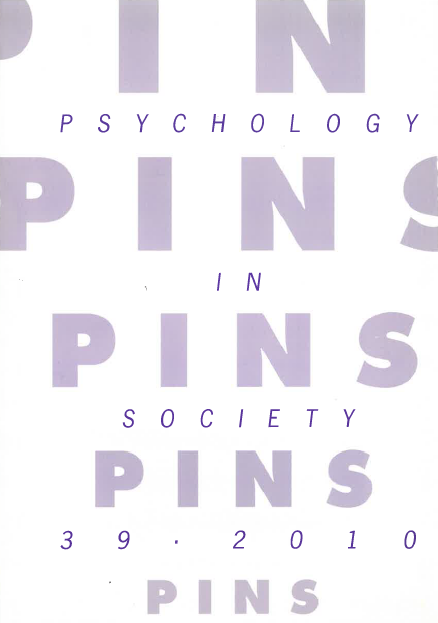A CONTEXTUAL ACCOUNT OF MOTHERHOOD
DOI:
https://doi.org/10.17159//2309-8708/2010/n39a4Abstract
The data for this paper was originally collected and analysed by the second author for her master’s thesis. The first author (the second author’s supervisor) has re-visited and re-worked the data and analysis for the purposes of this paper. The data was collected during two focus groups with six, white middle-class South African mothers. The study adopted a feminist method of analysis, the voice-relational method, with the aim of opening up for exploration the way in which mothers’ everyday experiences of mothering are impacted on by the specific social context in which they are embedded. The voice-relational method of analysis, based on the principles of relational ontology, proved a useful tool to explore the way in which individual mothers’ experiences are informed by their location within particular relational, structural and cultural contexts. The analysis reveals the way in which race, class, sexual orientation and gender intersect with dominant ideologies of motherhood to inform the experiences of suburban, middle-class women negotiating, within a complex set of relationships, what it is
to be a mother.
Downloads
Downloads
Published
How to Cite
Issue
Section
License
This journal is an open access journal, and the authors' and journal should be properly acknowledged, when works are cited.
Authors may use the publishers version for teaching purposes, in books, theses, dissertations, conferences and conference papers.
A copy of the authors’ publishers version may also be hosted on the following websites:
- Non-commercial personal homepage or blog.
- Institutional webpage.
- Authors Institutional Repository.
The following notice should accompany such a posting on the website: “This is an electronic version of an article published in PINS, Volume XXX, number XXX, pages XXX–XXX”, DOI. Authors should also supply a hyperlink to the original paper or indicate where the original paper (http://www.journals.ac.za/index.php/pins) may be found.
Authors publishers version, affiliated with the Stellenbosch University will be automatically deposited in the University’s’ Institutional Repository SUNScholar.
Articles as a whole, may not be re-published with another journal.
The copyright of the article(s) lies with the author(s).
The copyright of the journal lies with PINS-psychology in Society.
The following license applies:
Attribution CC BY-NC-ND 4.0 - https://creativecommons.org/licenses/by-nc-nd/4.0/

